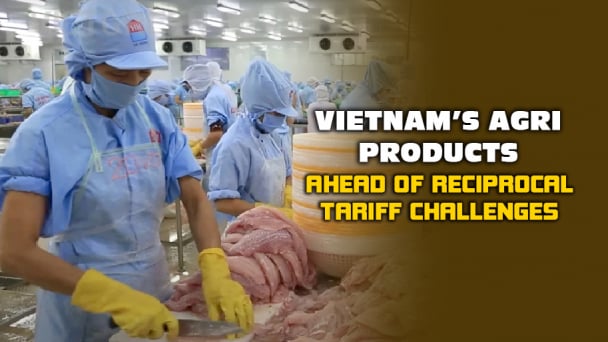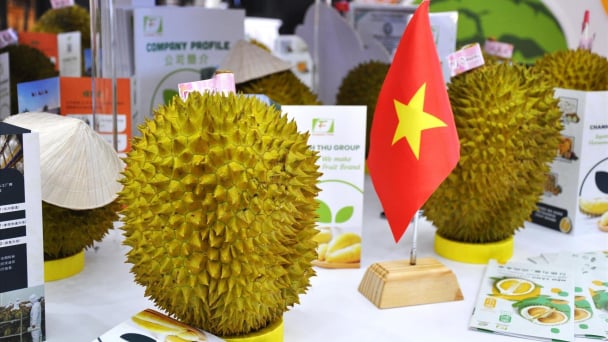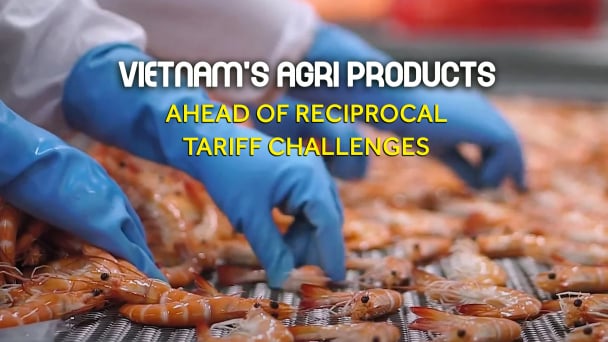May 30, 2025 | 12:01 GMT +7
May 30, 2025 | 12:01 GMT +7
Hotline: 0913.378.918
May 30, 2025 | 12:01 GMT +7
Hotline: 0913.378.918

The British cargo ship Rubymar sank off the coast of Yemen after a Houthi attack. Photo: AFP.
"The maritime sector now faces many challenges such as conflict, threats to maritime traffic, piracy, crime, terrorism, and environmental degradation", Mr. Nguyen Minh Vu, Assistant Minister of Foreign Affairs, speaking at the 12th Sea Dialogue on March 15 in Ho Chi Minh City.
In that context, the world's important lifelines and maritime chokepoints are at risk of becoming geopolitical targets, typically the chaos taking place in the Red Sea, where Houthi forces are located. Yemen is increasing attacks on passing cargo ships to pressure Israel to stop its campaign to attack Hamas in the Gaza Strip.
According to Mr. Vu, despite being far from the Red Sea, Vietnam is being heavily affected by the upheaval in this area, when consecutive raids by Houthi forces have caused cargo ships to be hit by missiles and many vehicles. Others had to switch to a further route, going around the Cape of Good Hope in Africa to avoid risks in the Red Sea.
The True Confidence ship with a crew of 20 people, including 4 Vietnamese citizens, was attacked by Houthi on March 6 on the journey from China to Saudi Arabia, killing four people. Chief Deputy Dang Duy Kien, 41 years old, from Hai Phong, was a Vietnamese citizen who died in the attack.
Houthi missiles on February 18 also hit the British cargo ship Rubymar. All sailors were safely evacuated, but Rubymar sank on the night of March 1, becoming the first ship sunk by Houthi fire in the Red Sea.
After the raids, few cargo ships wanted to continue passing through the Red Sea and the Suez Canal, according to maritime risk analysis firm Windward. On March 7, the International Transport Workers' Federation (ITF) issued a statement calling all cargo ships to redirect to the Cape of Good Hope in Africa because "delivery time is not worth the lives of sailors".
The high risk from Houthi attacks has led to higher insurance premiums and higher energy costs for shipping. According to the Vietnam Maritime Administration, shipping rates from Vietnam to the East Coast of the United States increased from US$ 2,600 per container in December 2023 to US$ 4,100-4,500 in January this year, equivalent to an increase of 58-73%. Shipping rates from Vietnam to Hamburg, Germany tripled.
JP Morgan Research estimates the disruption could increase global commodity inflation by 0.7 percentage points and core inflation by 0.3 percentage points in the first half of 2024.
However, Mr. Nguyen Minh Vu also expressed optimism that the Indo-Pacific region has great potential for maritime connectivity, promising to bring great economic growth.
This area has 7 out of the 10 largest ports in the world and is rich in port development potential, considered a global center for economic growth and technological development. The Indo-Pacific is closely connected by a dense network of submarine cables, the backbone for telecommunications and Internet connections.
Translated by Ha Phuc

(VAN) Reciprocal tariffs are exerting pressure on U.S. exports, prompting Vietnamese firms to shift their focus to Muslim markets, Thailand, and Brazil.

(VAN) A free booth for two years at Xinfadi, Beijing's largest wholesale market, will be allocated to Vietnam's agricultural products.

(VAN) Vietnamese shrimp exporters are actively looking for alternative markets and accelerating shipments to the United States in response to the pressure of impending reciprocal tariffs. This is occurring during a temporary tariff suspension.

(VAN) The import-export turnover between Vietnam and Singapore rose amid a trade rebound, with machinery, electrical equipment, and fuels making up the majority of the transaction value.

(VAN) Director General of the General Administration of Customs of China, Ms. Sun Mai Jun, has pledged to implement measures that will ease the import process for Vietnamese agricultural products.

(VAN) Although Vietnam is still increasing its coffee exports, the industry is currently in the process of determining market strategies in response to the U.S. imposition of reciprocal tariffs.

(VAN) With rising demand in Muslim-majority countries, Halal certification is becoming a critical passport for Vietnamese agricultural products seeking sustainable market access and consumer trust in the Middle East and Africa.